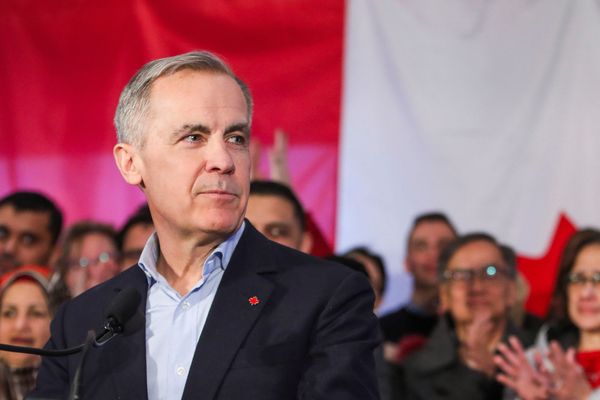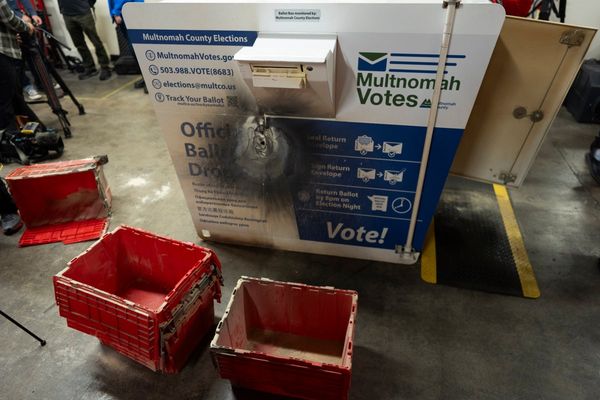
The monthslong saga about whether Israel would unilaterally annex portions of the West Bank seems to be ending with a whimper. Israelis, far more focused on their struggle to control the coronavirus and deal with the staggering 21 percent unemployment rate it fueled, largely ignore the issue. One poll recorded only 4 percent of Israelis who rated annexation as their priority for government action.
Those who oppose annexation as a terrible blow to prospects for a two-state solution to the Israeli-Palestinian conflict, to Israel’s Jewish and democratic character, and to the bipartisan U.S. support for Israel might consider exhaling. A catastrophe has been seemingly avoided, even as other huge challenges in the Israeli-Palestinian arena remain.
But the story is not over yet. The political interests of U.S. President Donald Trump and Israeli Prime Minister Benjamin Netanyahu could still move annexation forward.
Netanyahu originally planned to proceed this summer with the annexation of up to 30 percent of the West Bank, encompassing areas that Trump’s Israeli-Palestinian peace plan envisions Israel keeping. In Netanyahu’s power-sharing government with his coalition partner—and rival—from the Blue and White party, Defense Minister Benny Gantz, he secured an agreement allowing him to bring annexation before the Knesset or the cabinet even without Gantz’s approval.
Several other factors intervened, in addition to the pandemic and attendant economic crisis. Key leaders of the Israeli settlement movement in the West Bank, whose interests annexation would ostensibly serve, opposed the move if carried out in the framework of the Trump plan, which envisions a Palestinian ministate—something the settlers oppose in any dimension. In the United States, Democratic Party leaders—from presumptive presidential nominee Joe Biden to key Democrats in the U.S. Congress—expressed a consensus opposed to annexation as a unilateral measure that would harm prospects for two states. Most importantly, Trump and his son-in-law and advisor Jared Kushner made clear they wanted a broad Israeli political consensus for annexation in order to rebut charges they were intervening in Israeli politics and to make it easier to recruit the support of Arab states and cast aside Palestinian opposition.
That gave Gantz and his partner, Foreign Minister Gabi Ashkenazi—both skeptics on annexation—real leverage, and they used it. Together, they established several conditions that needed to be met before they would support annexation: It must be coupled with expanding areas of the West Bank under sole Palestinian Authority control; it must ensure transportation continuity for Palestinians to travel between all major West Bank cities without encountering Israeli military checkpoints; there must be economic benefits and other measures to stabilize the Palestinian economy, including increased movement of goods and people across the Allenby Bridge and through Israeli ports; annexed areas should include no Palestinian residents unless they are offered full Israeli citizenship; and Israel must accept the full Trump plan, including its call for a Palestinian state.
Each of these conditions is a poison pill for Netanyahu, who could never get his own Likud party to support even one of them.
This combined Israeli and American political pressure seemed to bury the issue. But it could yet rise zombielike from the grave. And the cause of that rise would be Trump’s own political needs.
Until now, Trump has paid little attention to the issue, as crisis after crisis has washed over the United States, laying bare the failures of his leadership and imperiling his reelection. He left it to Kushner to arrange the parameters of U.S. support for annexation, but there is no evidence the issue is on the minds of most American voters.
But as the election heads into the home stretch, Trump’s interests could change. Specifically, as polls show him continually trailing Biden by 5 to 8 percentage points, including in most swing states, and as a large majority of Americans say they disapprove of his management of the coronavirus pandemic, Trump’s best chance of eking out a narrow victory is to boost enthusiasm among his base so that they turn out to vote in disproportionate numbers.
There is scant evidence that Jewish voters, even those who might vote for Trump, are enthusiastic about annexation. But the calculation might be different for a much larger portion of Trump’s base, evangelical Christians.
Would evangelicals respond positively to annexation? It’s hard to say. Some experts, like the author and activist Joel Rosenberg, argue that while Trump’s recognition of Jerusalem as Israel’s capital and transfer of the U.S. Embassy there resonated deeply with evangelicals, the more arcane questions of Israel’s precise borders generate no special enthusiasm. Other leaders, like John Hagee of Christians United for Israel, have urged that annexation go forward and promise to use it to rally their flocks. By helping Israel secure its hold on biblical locales where settlements now sit, such as Beit El and Shiloh, and by garnering the praise of Netanyahu, whom many evangelicals admire, Trump, they argue, could excite these key voters.
Whether or not it would work is beside the point. If Trump and his key campaign advisors believe annexation would boost evangelical turnout by even a point or two, and if he is in desperate enough electoral straits, he may decide that he needs it. That is, Trump’s quest for political survival may impel him to try to force through an annexation that Israelis have not embraced.
In this scenario, Trump would essentially tell Kushner: “Tell Bibi to annex something. Don’t bother me with the details.” Kushner would then inform the Israelis that the U.S. requirement for consensus in the Israeli cabinet has been dropped. Netanyahu could proceed without meeting Gantz and Ashkenazi’s conditions. The concern about losing Arab states’ support or Palestinian cooperation would be jettisoned as problems to be dealt with later, if Trump survives.
And while the vote in the cabinet may be close, Netanyahu would likely have a majority to prevail.
Would Netanyahu proceed? He faces an enraged public, a corruption trial, and the likelihood of a Biden victory, which could lead to a clash if annexation is rushed through before the U.S. election. But Netanyahu is also on the verge of calling the fourth Israeli election in the last 19 months, in which case he would have his own voters to energize. Could he say no to an offer—if not an outright order—from the White House to proceed with annexation, having tied himself so tightly to Trump, who retains strong affection in Netanyahu’s base?
With questions like these hanging in the air, annexation opponents cannot rest easy and must continue to make a strong case against this highly damaging move.







